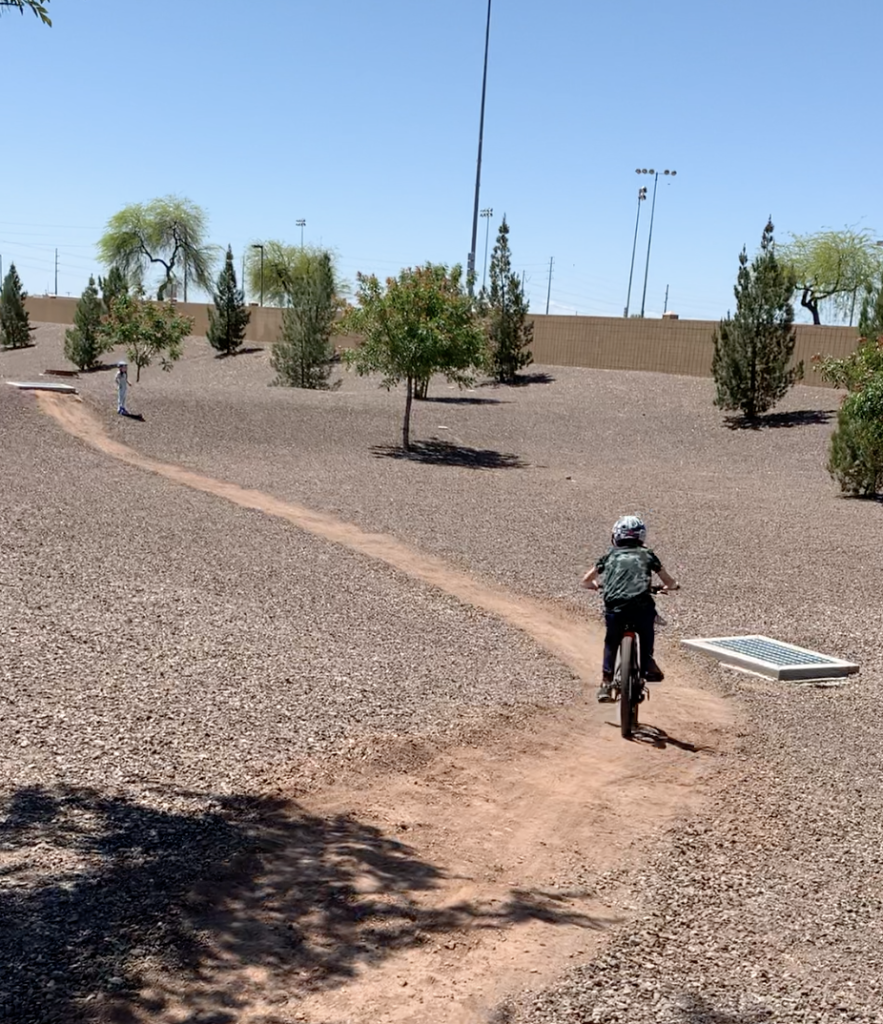I’m teaching my 11-year-old how to mow the grass. This was a significant marker in my life when my dad taught me, and I feel like in a way I’m passing the mantle to my son.
I’m convinced it’s good for him, even though he doesn’t yet think so.
It’s possible to cut your grass randomly and still get it all cut. But I love the way fresh cut striped grass looks. Maybe you’ve seen it at golf courses or baseball fields, with stripes stand out as if they’ve been freshly ironed. Naturally, I’m transferring this love to my son.
It’s not hard to stripe. Just keep the outside tire of your mower just outside the cut line, making sure the blades extend just to the edge of the previously cut line. Clip every blade. Keep your line straight.

I’ve been giving my son more and more of a leash lately, so I let him cut the back yard “by himself” yesterday. And do you know what happened? There were little tiny strips of grass left uncut all over the yard. From one angle, the misses looked random. But as I walked up and down the rows, I realized they weren’t random at all. They were perfectly lined 1.5″ strips all up and down the yard. You know why?
Because he took his eye off the line. He would make the turn to go down the row, and his eyes would start looking at the amount of work still left to do. Our back yard is basically a square, so every turn you make, you can easily see how much is left to cut and how many more passes you’ve got to make. A minor 1.5″ off from each line doesn’t feel significant in the moment, and because he’s plowing ahead with each row, he doesn’t notice what he’s missing. All he noticed in the moment was how much work was still left to do.
And it actually caused us to have to spend a lot more time, make a lot more passes after Rex thought he was finished. I brought him down each row, and said, “Look…here’s where you went off the path.”
Check this out, in Hebrews 12:2-3
[Look] to Jesus, the founder and perfecter of our faith, who for the joy that was set before him endured the cross, despising the shame, and is seated at the right hand of the throne of God. 3 Consider him who endured from sinners such hostility against himself, so that you may not grow weary or fainthearted.
So the command here is to “look to Jesus.” You’ve probably heard that before. But did you catch what happens when you take your eyes off of him? You “grow weary or fainthearted.”
I’ve found myself growing weary and fainthearted recently. With piles of emails awaiting me, kids at home doing school, and ongoing commitments 3-4 nights/week, I’ve felt pretty scorched at the edges. The way I know I’m growing weary is not that I get physically tired…it’s that I get physically short on patience. Everything becomes an interruption, and people get in the way of what I’m trying to do. I’ve heard it said that one of the best ways to check your heart and test whether you’re growing in spiritual maturity or not is to look at your closest relationships and ask yourself, “Am I growing more patient and loving? Or less?”
Instead of looking at Jesus, my eyes drifted to the work that I still needed to do. The emails, meeting, and events. The homework, tests, and projects.
When I keep my eyes on Jesus, it gives me the freedom to be ruthlessly present with whoever and whatever is in front of me. Because as I keep my eyes on Jesus, it helps me to not grow weary or fainthearted, impatient and frustrated with those around me. I grow weary when I think things depend on me. Keeping my eyes on Jesus allows me to trust that the work will still be there when I return. That Jesus will build his church, and that he doesn’t “need” me (though he chooses to use each of us). This doesn’t exempt me from doing work. In fact, it empowers me, realizing that I’ve got the King of the universe working in and through me.
Peace only happens in my life when I surrender to the Prince of Peace.
The moment I put my eyes squarely on my work, the more weary and fainthearted I become. I have to trust Jesus is going to take care of that as long as I keep my eyes on him and keep moving forward.
I will build my church, and the gates of Hades will not overcome it. – Jesus, Matthew 16:18









